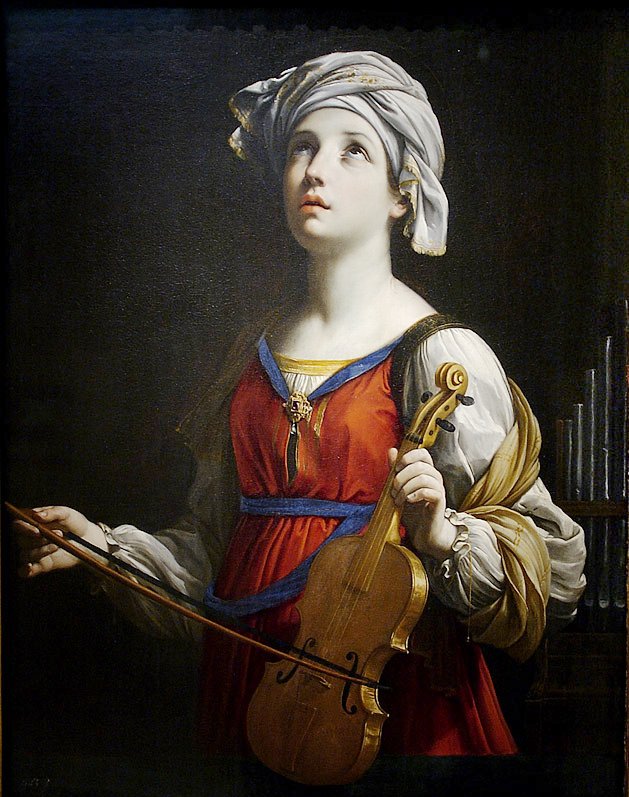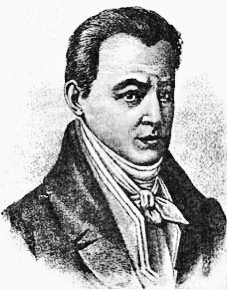|
Perebendya
Perebendya ( ua, Перебендя) is a poem by Taras Shevchenko about the blind itinerant Ukrainian bard (Kobzar). The poem is dated as written in approximately 1839 in Saint Peterburg. The first known publication of this poem, originally dedicated to Yevhen Hrebinka, is considered the 1840 ''Kobzar'' (also in Saint Peterburg), the first edition of this Shevchenko's best known poetry collection. The poem was published again in the 1844 edition of Kobzar without the dedication to Hrebinka and with some orthographic changes. The same year the poem was published in the Polish transliteration in the collection «Wirszy T. Szewczenka» (the publication contained one grammatical error in declension.) When, after his return from the exile, Shevchenko was preparing the publication "Poetry by Shevchenko. Volume 1" he reworked the text again and renamed the poem to "Kobzar". The new publication of the volume encountered the difficulties with the censorship office that only granted the per ... [...More Info...] [...Related Items...] OR: [Wikipedia] [Google] [Baidu] |
Kobzar (book)
''Kobzar'' ( Ukrainian: Кобзар, "The bard"), is a book of poems by Ukrainian poet and painter Taras Shevchenko, first published by him in 1840 in Saint Petersburg, Russia. Taras Shevchenko was nicknamed ''The Kobzar'' after the publishing of this book. From that time on this title has been applied to Shevchenko's poetry in general and acquired a symbolic meaning of the Ukrainian national and literary revival. The first publication consisted of eight poems: "Думи мої, думи мої, лихо мені з вами" (''My thoughts, my thoughts, you are my doom''), "Перебендя" ( Perebendya), "Катерина" (''Kateryna''), "Тополя" (''Poplar tree''), "Думка" (''Thought''), "Нащо мені чорні брови" (''Why should I have Black Eyebrows''), "До Основ'яненка" (''To Osnovyanenko''), "Іван Підкова" ('' Ivan Pidkova''), and "Тарасова ніч" (''Taras's night''). There were three editions of the ''Kobzar'' ... [...More Info...] [...Related Items...] OR: [Wikipedia] [Google] [Baidu] |
Taras Shevchenko
Taras Hryhorovych Shevchenko ( uk, Тарас Григорович Шевченко , pronounced without the middle name; – ), also known as Kobzar Taras, or simply Kobzar (a kobzar is a bard in Ukrainian culture), was a Ukrainian poet, writer, artist, public and political figure, folklorist and ethnographer.Taras Shevchenko in the Great Soviet Encyclopedia, 3rd Edition. 1970-1979 (in English) His literary heritage is regarded to be the foundation of modern and, to a large extent, the modern , thou ... [...More Info...] [...Related Items...] OR: [Wikipedia] [Google] [Baidu] |
Blind Musicians
Blind musicians are singers or instrumentalists, or in some cases singer-accompanists, who are legally blind. Resources Historically, many blind musicians, including some of the most famous, have performed without the benefit of formal instruction, since such instruction relies extensively on written musical notation. However, today there are many resources available for blind musicians who wish to learn Western music theory and classical notation. Louis Braille, the man who created the braille alphabet for the blind, also created a system of classical notation for the blind called Braille music. This system allows the blind to read and write music much as the sighted do. The largest collection of Braille musical scores is located at the Library of Congress in Washington, D.C. Outside the U.S., the largest collection of braille music scores is stored at the National Library for the Blind in England. Computer technology and the Internet make it possible in theory for blind ... [...More Info...] [...Related Items...] OR: [Wikipedia] [Google] [Baidu] |
Kobzar
A ''kobzar'' ( ua, кобзар, pl. kobzari ua, кобзарі) was an itinerant Ukrainian bard who sang to his own accompaniment, played on a multistringed bandura or kobza. Tradition Kobzars were often blind and became predominantly so by the 1800s. ''Kobzar'' literally means ' kobza player', a Ukrainian stringed instrument of the lute family, and more broadly — a performer of the musical material associated with the kobzar tradition. The professional kobzar tradition was established during the Hetmanate Era around the sixteenth century in Ukraine. Kobzars accompanied their singing with a musical instrument known as the kobza, bandura, or lira. Their repertoire primarily consisted of para-liturgical psalms and "kanty", and also included a unique epic form known as dumas. At the turn of the nineteenth century there were three regional kobzar schools: Chernihiv, Poltava, and Slobozhan, which were differentiated by repertoire and playing style. Guilds In Ukraine, ... [...More Info...] [...Related Items...] OR: [Wikipedia] [Google] [Baidu] |
Saint Peterburg
Saint Petersburg ( rus, links=no, Санкт-Петербург, a=Ru-Sankt Peterburg Leningrad Petrograd Piter.ogg, r=Sankt-Peterburg, p=ˈsankt pʲɪtʲɪrˈburk), formerly known as Petrograd (1914–1924) and later Leningrad (1924–1991), is the second-largest city in Russia. It is situated on the Neva River, at the head of the Gulf of Finland on the Baltic Sea, with a population of roughly 5.4 million residents. Saint Petersburg is the fourth-most populous city in Europe after Istanbul, Moscow and London, the most populous city on the Baltic Sea, and the world's northernmost city of more than 1 million residents. As Russia's Imperial capital, and a historically strategic port, it is governed as a federal city. The city was founded by Tsar Peter the Great on 27 May 1703 on the site of a captured Swedish fortress, and was named after apostle Saint Peter. In Russia, Saint Petersburg is historically and culturally associated wi ... [...More Info...] [...Related Items...] OR: [Wikipedia] [Google] [Baidu] |
Yevhen Hrebinka
Yevhen Pavlovych Hrebinka ( uk, link=no, Євген Павлович Гребінка; russian: link=no, Евге́ний Па́влович Гребёнка) (2 February 1812, Ubizhyshche (today – Marianivka), Poltava Governorate - 15 December 1848, Saint Petersburg) was a Ukrainian romantic prose writer, poet, and philanthropist. He wrote in both the Ukrainian and Russian languages. He was an older brother of the architect . Life and career Yevhen was born in a khutir, Ubizhyshche, to a retired stabs-rotmistr, (1LT) Pavlo Ivanovych Hrebinka, and the daughter of a Cossack captain from Pyriatyn, Nadiia Chaikovska. He received his elementary education at home. From 1825 to 1831 he studied at the Gymnasium of Higher Sciences in Nizhyn. Hrebinka began writing his poems while in school. In 1827 he wrote his drama piece ''V chuzhie sani ne sadis'' (Do not get seated in others sleigh - Russian proverb). In 1829 he started to work on a Ukrainian language translation of a poem b ... [...More Info...] [...Related Items...] OR: [Wikipedia] [Google] [Baidu] |
Declension
In linguistics, declension (verb: ''to decline'') is the changing of the form of a word, generally to express its syntactic function in the sentence, by way of some inflection. Declensions may apply to nouns, pronouns, adjectives, adverbs, and articles to indicate number (e.g. singular, dual, plural), case (e.g. nominative case, accusative case, genitive case, dative case), gender (e.g. masculine, neuter, feminine), and a number of other grammatical categories. Meanwhile, the inflectional change of verbs is called ''conjugation''. Declension occurs in many of the world's languages. It is an important aspect of language families like Quechuan (i.e., languages native to the Andes), Indo-European (e.g. German, Lithuanian, Latvian, Slavic, Sanskrit, Latin, Ancient Greek, Modern Greek, Classical Armenian and Modern Armenian and Kurdish), Bantu (e.g. Zulu, Kikuyu), Semitic (e.g. Modern Standard Arabic), Finno-Ugric (e.g. Hungarian, Finnish, Estonian), and Turkic (e. ... [...More Info...] [...Related Items...] OR: [Wikipedia] [Google] [Baidu] |
Ivan Yizhakevych
Ivan Sydorovych Yizhakevych ( uk, Іва́н Си́дорович Їжаке́вич; January 18, 1864 – January 19, 1962) was a Soviet and Ukrainian painter and writer, People's Painter of the Ukrainian SSR (1951). Life, education and work Yizhakevych was born in the village of Vyshnopil, Kiev Governorate. He was educated at the M. Murashko School of Art in Kyiv, Ukraine from 1882 to 1884. Following this Yizhakevych studied at the St. Petersburg Academy of Arts from 1884 to 1888. Yizhakevych's paintings reflect themes from Ukrainian history, such as Kyi, Shchek and Khoryv, Cossack battles, and Haidamaky. Yizhakevych also illustrated works by Ukrainian writers, among them: Taras Shevchenko, Lesya Ukrainka Lesya Ukrainka ( uk, Леся Українка ; born Larysa Petrivna Kosach, uk, Лариса Петрівна Косач; – ) was one of Ukrainian literature's foremost writers, best known for her poems and plays. She was also an active ..., Ivan Kotliarev ... [...More Info...] [...Related Items...] OR: [Wikipedia] [Google] [Baidu] |
Izbornyk
Izbornyk is an internet-library project of the old Ukrainian literature also known as "History of Ukraine 9-18th centuries. Primary sources and interpretation". It functions since the 21st of August 2001. The project is a collection of major works on history of Ruthenia, Cossack Hetmanate and Ukraine. The project covers the following main subjects: Chronicles, Linguistics, History, Old Ukrainian Literature, Taras Shevchenko, Political Science, Literary Studies, Grammar and lexicons, Historical maps. 2016, according to website visit statistics, there are from 200,000 to 500,000 visitors per month. Idea A library is a collection of ebooks and texts, combined with a declared theme and a single idea. The idea behind the project is to strive to collect as many works of Ukrainian writing as possible, not simply as a random collection of texts from different times and authors, but against the backdrop of a holistic cultural and historical process, which would make it clear the uni ... [...More Info...] [...Related Items...] OR: [Wikipedia] [Google] [Baidu] |
List Of Ukrainian-language Poets
The following is a list of Ukrainian-language poets. 18th century * Hryhori Skovoroda – Kharkiv Oblast 19th century * Taras Shevchenko – Zvenyhorodsky Raion, Cherkasy Oblast * Ivan Franko – Yavorivskyi Raion, Lviv Oblast *Leonid Hlibov – Khorolskyi Raion, Poltava Oblast * Yevhen Hrebinka – Ubizhyshche, (today – Marianivka), Poltava Governorate *Levko Borovykovsky – Myliushky, Poltava Governorate * Ivan Vahylevych – village of Yasen (today in Kalush Raion), Stanisławów Powiat, Kingdom of Galicia and Lodomeria * Markiyan Shashkevych – Pidlyssia, Złoczów Powiat, Kingdom of Galicia and Lodomeria * Panteleimon Kulish – Voronizh (now in Sumy Oblast) * Yuriy Fedkovych – Putyla (now in Chernivtsi Oblast) * Pavlo Chubynsky – village Hora, Pereyaslav county, Poltava Governorate 20th century *Mykola Khvylovy – Trostianets, Sumy Oblast * Olena Teliha – Moscow, Russia * Pavlo Tychyna – Chernihiv Oblast *Lesya Ukrainka – Zviahel, Z ... [...More Info...] [...Related Items...] OR: [Wikipedia] [Google] [Baidu] |
List Of Ukrainian-language Writers
This is a list of authors who have written works of prose and poetry in the Ukrainian language. A * Nikolai Amosov (1913–2002), novelist, essayist, and medical writer *Emma Andijewska (born 1931), novelist, poet, and short story writer *Nadija Hordijenko Andrianova (1921–1998), journalist, translator, and biographer *Sofia Andrukhovych (born 1982), novelist, translator, and editor *Yuri Andrukhovych (born 1960), novelist, poet, short story writer, essayist, and translator *Bohdan Ihor Antonych (1909–1937), poet, translator, and editor B * Ivan Bahrianyi (1906–1963), poet, novelist, and essayist *Mykola Bakay (1931–1998), poet, and songwriter *Vasyl Barka (1908–2003), poet, writer, literary critic, and translator *Volodymyr Ivanovych Barvinok (1879–1943), historian, theologian, and bibliographer * Mykola Bazhan (1904–1983), poet, editor, and translator *Natalia Belchenko (born 1973), poet and translator *Nina Bichuya (born 1937), novelist, and children's writer * ... [...More Info...] [...Related Items...] OR: [Wikipedia] [Google] [Baidu] |
Ukrainian Literature
Ukrainian literature is literature written in the Ukrainian language. Ukrainian literature mostly developed under foreign domination over Ukrainian territories, foreign rule by the Polish–Lithuanian Commonwealth, Poland, the Russian Empire, the Kingdom of Romania, the Austria-Hungary Empire, and the Ottoman Empire, enriched Ukrainian culture and language, and Ukrainian authors were able to produce a rich literary heritage. Ukrainian literature’s precursor: writings in Old-Church Slavonic and Latin in Ukraine Prior to the establishment of Ukrainian literature in 1700s, many authors from Ukraine wrote in "scholarly" languages of middle-ages – Latin and Old-Church Slavonic. Among prominent authors from Ukraine who wrote in Latin and Old-Church Slavonic are Hryhorii Skovoroda, Yuriy Drohobych, Stanislav Orikhovsky-Roxolan, Feofan Prokopovych, , and others. The beginnings of oral Ukrainian literature During this period of history there was a higher number of elemen ... [...More Info...] [...Related Items...] OR: [Wikipedia] [Google] [Baidu] |





